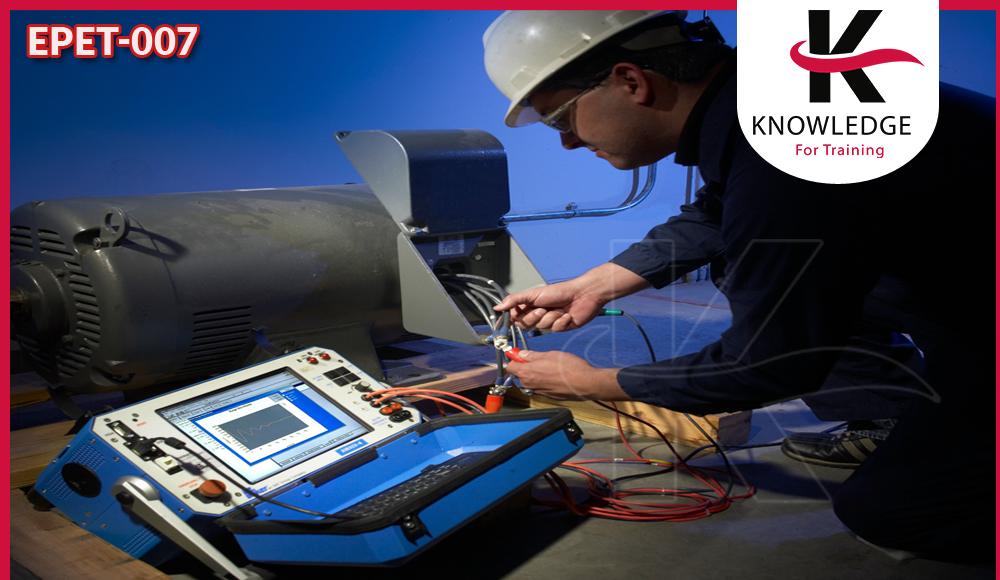-
Course Code
EPET-007

Electrical Motor Maintenance & Troubleshooting
- Electrical motors represent industry's workhorse in small, medium and large size applications. It is no exaggeration to suggest that more than 50% of the energy consumed worldwide is converted by AC motors into work and these motors are controlled by drives.
- Understanding maintenance and troubleshooting procedures of such vital industrial equipment means that reduced downtime and increased productivity are the immediate benefits for the company and its management.
Learning Outcomes
- Understand the operation and construction of AC electrical motors and the electrical drives based on modern electronics technology.
- Become more confident on how to maintain both motors and drives following well-established industrial procedures as outlined in standards.
- Become familiar with troubleshooting methods for both motors and drives following methodologies that have been developed by manufacturers in order to reduce downturn time dramatically.
- Learn how to utilize single-line drawings, and other documentation to successfully perform commissioning, maintenance and troubleshooting of both motors and drives.
- Become exposed to industrial standards and case studies so that to be able to apply this knowledge in the industrial plant as quickly and efficiently as possible.
Course Contents
- Horsepower, torque and loading
- Construction
- Electrical principles voltage, current, impedance
- Magnetism, induction, propulsion
- Frequency, speed, and slip
- Power factor
- Voltage, phase, FLA, frequency
- RPM, duty, design, code letter
- Service factor, insulation, temperature
- Frame, connections, efficiency
- Horsepower
- Wyes and deltas
- 3, 6, 9, and 12 leads
- Dual voltage connections
- Squirrel cage, synchronous, wound rotor
- Sizing conductors
- Overload protection
- Motor starters
- Short-circuit protection
- Design E motors
- Exercises on using the NEC
- Capacitor-start, permanent-split, shaded-pole, split-phase, repulsion and universal
- Dual voltage connections
- Multiple speed connections
- Series, shunt
- compound and permanent magnet
- Characteristics of motors, enclosures and cooling methods, application data, design characteristics, insulation of AC motors.
- Troubleshooting and maintenance of AC motors, routine care, dirt and corrosion, lubrication, heat, noise and vibration, insulation.
- Slow acceleration or refusal to starting of an AC motor, overheating and noise making of the motor, running of bearings at high temperature or making noise.
- Standards and testing
- Advantages and disadvantages
- Enclosure types
- Accessories
- Terminology
Basic Motor Theory
Nameplate Data
Three-Phase Motors
National Electric Code & Motors
Single-Phase Motors
Dc Motors
Troubleshooting and Maintenance of Motors
Motor Selection
Our Methodology
- Make coaching and monitoring innovative and using modern
- Media training also using on the go training by using interactive means and focusing on
- The exercises, practical applications and real situations study
- Live delivery method, instructor-led training
- Experienced consultant, trainers, and professional
- Qualified trainer with high-level experience
Attendance Reports
- Send daily attendance reports to training departments
- Send full attendance report to training dep. by the end of the course
- Attend 100 % from the course days also provide daily
- Issue attendance certificate for participant who attend minimum 80% from the course duration
Pre/Post Reports
- Pre- assessment before starting training
- Post assessment after finish training
- Full report for the deferent between Pre-& Post assessment
Who Should Attend
- Maintenance Technicians
- HVAC maintenance and Repair Technicians
- Plant & facility maintenance technicians
- Building engineers, managers & superintendents
